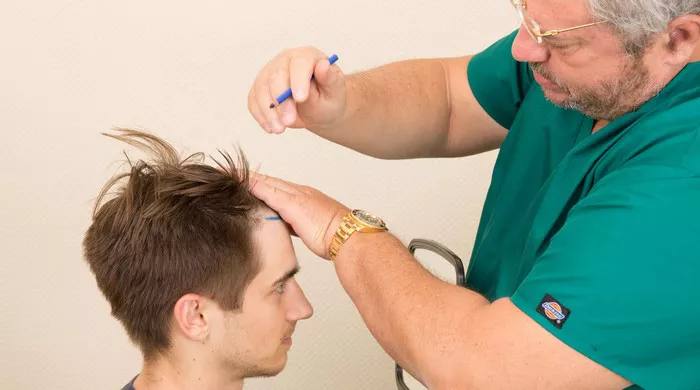Hair transplant procedures have become increasingly popular as a solution for individuals experiencing hair loss. Whether caused by genetics, hormonal changes, or other factors, the desire for a fuller head of hair has led many to explore the possibilities of hair transplantation. One common question that arises is whether a hair transplant is permanent. Understanding the durability of a hair transplant involves delving into the science behind the procedure and considering various factors that can impact its long-term success.
I. The Science Behind Hair Transplants
Hair transplants involve the extraction of hair follicles from one part of the body, typically the back of the scalp, and implanting them into areas where hair loss has occurred. The harvested hair follicles are resistant to the hormone DHT, which is often responsible for hair loss. This resistance makes transplanted hair less susceptible to falling out, providing a long-lasting solution to baldness. However, it’s crucial to note that not all transplanted hair is immune to thinning or shedding.
II. Understanding the Permanence
While a hair transplant is considered a permanent solution, it’s essential to manage expectations. The transplanted hair behaves like the hair from the donor area, which means it can be subject to the same conditions and changes over time. The natural aging process and potential future hair loss in the donor area can affect the overall appearance of the transplanted hair. Additionally, proper post-operative care and maintenance play a crucial role in ensuring the longevity of the results.
III. Factors Influencing Long-Term Success
Several factors can impact the durability of a hair transplant. The skill and experience of the surgeon, the quality of the donor hair, and the patient’s overall health and lifestyle choices all contribute to the success and permanence of the procedure. Choosing a qualified and experienced surgeon is paramount, as their expertise can significantly affect the outcome. Moreover, maintaining a healthy lifestyle, including a balanced diet and stress management, can positively influence the longevity of the transplanted hair.
IV. Post-Operative Care and Maintenance
To maximize the permanence of a hair transplant, patients must adhere to post-operative care instructions provided by their surgeon. This includes proper cleaning of the transplanted area, avoiding activities that could damage the grafts, and taking prescribed medications as directed. Regular follow-up appointments allow the surgeon to monitor the progress and address any concerns promptly. Compliance with these guidelines is crucial for achieving optimal results and minimizing the risk of complications.
V. FAQs on Hair Transplant Durability
Q1: Is a hair transplant a one-time procedure?
A: While a hair transplant is a one-time surgical procedure, additional sessions may be necessary for optimal results, depending on the extent of hair loss and individual goals.
Q2: Can transplanted hair fall out?
A: Transplanted hair is generally resistant to DHT and less prone to falling out. However, it’s essential to note that some shedding may occur initially, but new growth follows.
Q3: How long does it take for transplanted hair to grow fully?
A: The growth timeline varies, but significant results are typically visible within 6 to 12 months post-surgery, with continued improvement over the following months.
Q4: Can a hair transplant address advanced stages of hair loss?
A: Hair transplants are most effective in addressing mild to moderate hair loss. Advanced cases may require multiple sessions or additional treatments for comprehensive coverage.
Q5: Are there risks of complications with a hair transplant?
A: While complications are rare, they can include infection, scarring, or an unnatural appearance. Choosing a skilled surgeon and following post-operative care instructions minimizes these risks.
Q6: Can transplanted hair be styled like natural hair?
A: Yes, transplanted hair can be styled and treated like natural hair. Once fully grown, it can be cut, colored, and styled according to individual preferences.
In conclusion, a hair transplant is generally considered a permanent solution for hair loss, providing individuals with a natural-looking and lasting result. However, managing expectations, choosing a qualified surgeon, and maintaining post-operative care are essential aspects of ensuring the durability of the procedure. By understanding the science behind hair transplants and addressing common concerns through FAQs, individuals can make informed decisions about pursuing this transformative solution for hair restoration.

